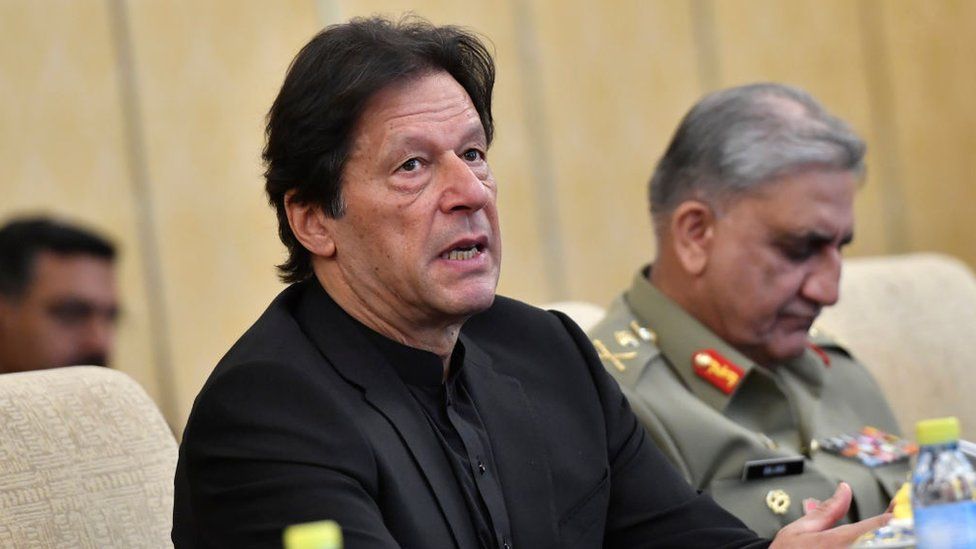-

-
-
Loading

Loading

The Zeshaan family in Pakistan has a firm rule against discussing politics when they gather. This rule was established after Imran Khan became the country's prime minister in 2018 and caused significant rifts within relationships and even within the Zeshaan family itself. Nida Zeshaan, a dedicated supporter of Imran Khan, reveals that her father's disapproval of the politician led to a three-month silent treatment between them. While political differences are common in families and friendships, no other politician in Pakistan has caused as much division as Imran Khan. He was elected on promises to fight corruption and improve the economy but has faced several criminal cases since being removed from power in 2022. These cases have prevented him from standing in the general elections on 8th February. Despite this, Imran Khan remains a popular topic of conversation ahead of the vote. Ms Zeshaan, who lives in Lahore, considers herself a diehard supporter of Khan and is drawn to his vision of an Islamic welfare state that promotes equality and equity for all. However, her father opposes Khan due to his perceived close ties with the military at the start of his political career. The military holds significant power and influence in Pakistan's politics, having governed the country directly for over three decades. No prime minister in Pakistan has managed to complete a full five-year term, while military dictators have ruled for more than nine years each. Khan initially gained political prominence with support from the military, but tensions arose between them once he took office. He allegedly fell out with military leaders over the appointment of the country's intelligence agency head. Four years into his premiership, Khan was ousted in a no-confidence vote. He claims that this was a foreign conspiracy involving the US and the military. Supporters like Ms Zeshaan consider Khan's downfall to be a consequence of not having enough time and opportunities to implement his promised reforms. Despite criticisms that his economic and anti-corruption pledges have not been fulfilled, Imran Khan's popularity remains strong. Various polls show his approval ratings slightly ahead of rival Nawaz Sharif. Many Pakistanis credit Khan with sparking a political awakening by presenting himself as a candidate for change. In contrast, some critics view Khan's politics as populist and divisive. They argue that he engaged in unnecessary conflicts with military leaders and behaved irresponsibly. Khan's challenge to the military, which has historically dictated the country's politics, is considered by some to be his biggest offense. While previous prime ministers have also clashed with the army, Khan's confrontations have caused greater divisions and tensions within the military establishment. Retired military officers who have spoken against political interference by the army claim they have faced repercussions, such as losing their pensions or receiving threats. Despite Khan being barred from the upcoming elections and his party facing setbacks, political divisions across Pakistan are expected to deepen. Supporters like Ms Zeshaan maintain strict political boundaries with friends and even cut ties if they cross those boundaries.